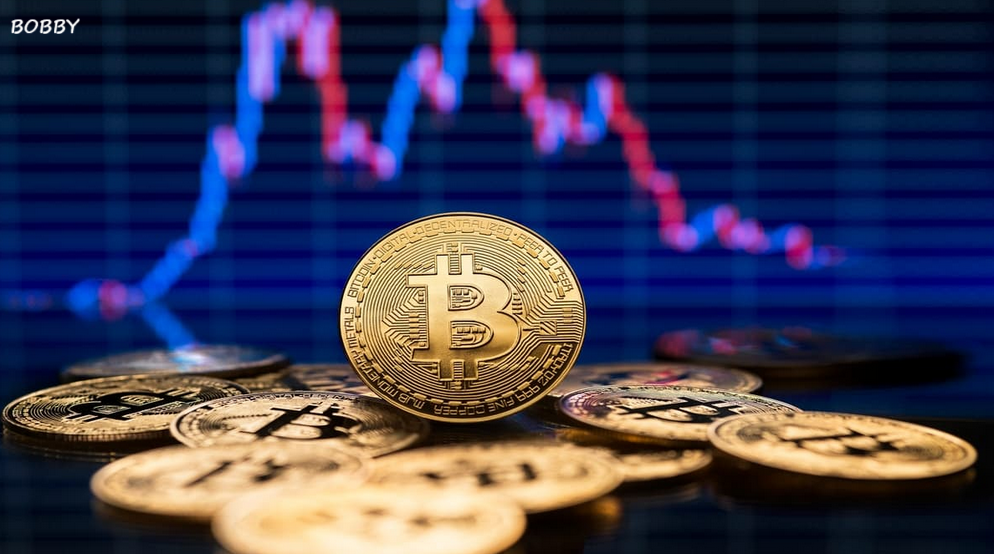The global cryptocurrency market opened the week on a steadier note, with Bitcoin showing signs of stability after recent volatility and Ethereum and major altcoins recording modest gains. Meanwhile, the political spotlight is once again on Washington, where US lawmakers are meeting top crypto executives in hopes of reviving long-stalled legislation to regulate the digital-asset market.
Bitcoin: A Quiet Rebound After Sharp Swings
Bitcoin (BTC) traded around $111,087 on Monday morning, down roughly 3.2% in the past 24 hours. It moved between a low of $107,453 and a high of $111,374, reflecting a narrow but steady range.
After dipping below $105,000 last week, Bitcoin rebounded by nearly 2%, helped by growing expectations that the Federal Reserve could soon end its tightening cycle. Fed Chair Jerome Powell recently hinted that rate cuts might be on the horizon—a shift that could restore risk appetite among institutional investors who have been cautious throughout 2025.
Adding to this improved sentiment, US Treasury Secretary Scott Bessent and Chinese Vice Premier He Lifeng are set to meet in Malaysia to ease trade tensions. Those tensions triggered a sharp sell-off earlier this month, wiping out nearly $21 billion from crypto markets in a single week.
Market analyst Ted Pillows noted that Bitcoin appears to be finding strong support even as gold stalls. “Gold is struggling near $4,350, but Bitcoin is holding firm around $104,000,” he said. “If inflation softens and trade relations stabilize, Bitcoin could outperform traditional hedges again.”
On-chain data supports the idea of a calmer market. Researcher Axel Adler Jr. pointed out that Bitcoin’s Net Unrealized Profit (NUP) metric shows the market is neither greedy nor fearful. “This is the kind of neutral zone that often precedes a major move,” he explained.
Bitcoin currently represents 57.36% of the total cryptocurrency market capitalization, maintaining its dominant position despite weaker volumes.
Ethereum and Altcoins: Steady but Subdued
Ethereum (ETH) rose 2.9%, trading near $4,032, after briefly dipping to $3,917. The price recovery comes as developers continue to expand Ethereum’s Layer-2 ecosystem and as upgrades make the network faster and more cost-efficient.
Other major cryptocurrencies also posted small gains:
-
Solana (SOL) added 1.7% to reach $192.09, bouncing between $184.58 and $194.13.
-
XRP climbed 3.5% to $2.45, showing renewed buying interest.
The broader altcoin market remains cautious. Traders appear to be focusing on strong, long-term projects rather than speculative short-term bets—a sign of maturing investor sentiment.
ETF Inflows Slow as Fear Persists
Market sentiment remains mixed. The Crypto Fear & Greed Index currently sits at 40, suggesting that investors are still in “fear” mode.
Spot Bitcoin ETFs recorded net outflows on four of the past five trading days, with only October 10 showing modest inflows of about $102.5 million. Cumulative inflows across all Bitcoin ETFs now stand at roughly $61.54 billion, according to data from CoinShares.
This suggests institutional investors are waiting for clearer regulatory signals before committing new capital.
US Regulation: Senators and Crypto Executives Seek Common Ground
A high-stakes meeting is scheduled this week in Washington, where Senator Kirsten Gillibrand will host a private roundtable with top Senate Democrats and leading crypto CEOs.
Among the expected attendees are:
-
Brian Armstrong, CEO of Coinbase
-
Mike Novogratz, CEO of Galaxy Digital
-
Stuart Alderoty, Chief Legal Officer at Ripple
-
Sergey Nazarov, CEO of Chainlink Labs
-
Hayden Adams, CEO of Uniswap Labs
The discussion centers on the Responsible Financial Innovation Act, a bipartisan bill co-authored by Gillibrand and Senator Cynthia Lummis. The bill seeks to define how digital assets are classified and which agencies—the SEC or CFTC—should oversee them.
However, the legislation has stalled due to political divisions. Democrats want stricter rules to oversee DeFi platforms and enforce anti-money-laundering standards, while Republicans are pushing for a lighter-touch framework that prioritizes innovation.
Analysts at TD Cowen believe that substantial crypto regulation in the US may not arrive until after the 2026 midterm elections, but this week’s talks could help break the current deadlock.
Global Developments: Japan and the UK Lead the Way
While the US remains gridlocked, other major economies are taking decisive steps toward regulation.
Japan: Banks May Soon Hold Bitcoin
Japan’s Financial Services Agency (FSA) is reviewing rules that currently prevent banks from holding Bitcoin or other unbacked crypto assets. If approved, the change would allow regulated institutions to keep limited amounts of digital assets on their balance sheets.
This move coincides with the country’s largest banks—MUFG, SMFG, and Mizuho—preparing to launch yen-pegged stablecoins under new legal frameworks. Japan’s crypto adoption has surged, with more than 12 million registered users, triple the number five years ago.
United Kingdom: Retail Investors Regain Access
The UK’s Financial Conduct Authority (FCA) has officially lifted its four-year ban on retail trading of crypto exchange-traded products (ETPs).
Major firms, including 21Shares, WisdomTree, and Bitwise, have listed Bitcoin and Ethereum ETPs on the London Stock Exchange, alongside BlackRock’s iShares Bitcoin ETP.
The move opens the door for retail investors to gain regulated exposure to crypto through traditional accounts like ISAs and SIPPs, although crypto derivatives remain off-limits until broader regulation is finalized in 2026.
Outlook: Calm Before the Next Big Move
The crypto market appears to be entering a consolidation phase. Bitcoin’s steady price action and Ethereum’s modest gains suggest investors are waiting for a clear macro or regulatory catalyst before taking larger positions.
If US lawmakers can reach consensus on crypto legislation and the Federal Reserve signals an easing of monetary policy, it could pave the way for renewed institutional inflows.
Meanwhile, Japan’s potential policy shift and the UK’s growing acceptance of digital assets indicate that crypto’s global integration is steadily advancing—even if progress in the US remains slow.
For now, the tone is cautious but hopeful. The next few weeks will be critical in determining whether this period of calm sets the stage for the next major rally—or simply another pause in crypto’s long-term evolution.



